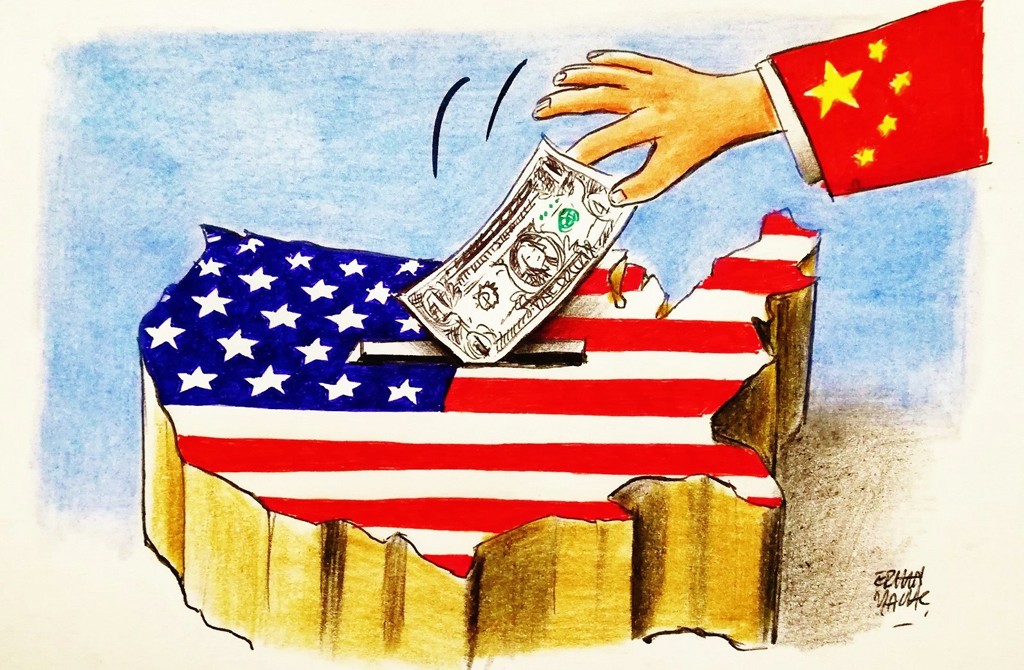One of the most important outcomes of the COVID-19 crisis will be its impact on U.S.-China relations, according to many scholars and experts. The already-strained relations between the two countries may be up for an even more challenging period in the second half of this year.
The U.S. accusations against China regarding the COVID-19 outbreak, the trade war disputes and the upcoming U.S. presidential elections make China “the issue” for U.S. domestic and foreign policy.
In fact, recent developments demonstrated the gravity of the situation. First of all, U.S. President Donald Trump and Secretary of State Mike Pompeo went ahead with their positions critical of China.
President Trump called the coronavirus, which he used to call the “China virus,” a plague from China. He even told journalists that he does not want to talk with Xi Jinping.
He also called the World Health Organization (WHO) a puppet of China. Finally, he said the U.S. would act strongly if the Chinese government imposed a new security law in Hong Kong.
Earlier this week, Pompeo tweeted in support of Taiwan’s WHO membership and congratulated Taiwanese President Tsai Ing-wen on her second inauguration.
Regarding the dispute between Australia and China, Pompeo said the U.S. is standing with Australia in regard to having an independent investigation on the COVID-19 outbreak.
On May 13, there was another important statement, this time coming from the FBI, accusing China of targeting U.S. research institutes working on COVID-19.
According to the statement, China made hacking attempts and carried out cyberattacks against institutions that are working to find a COVID-19 vaccine.
It stated that these actors “have been observed attempting to identify and illicitly obtain valuable intellectual property (IP) and public health data related to vaccines, treatments, and testing from networks and personnel affiliated with COVID-19-related research.”
This statement came after an investigation on a professor at Case Western University and former researcher at Cleveland Clinic regarding sharing data from his federally funded research with the Chinese government.
This has demonstrated increasing tension between China and the U.S. concerning the intellectual property rights related to medical research on COVID-19 and beyond.
Finally, a public opinion poll conducted by Pew Research demonstrated that there is a societal dimension of the tension between the U.S. and China among the American people.
The survey data shows that the American public’s perception of China has turned increasingly negative since the beginning of the outbreak.
According to a recent survey, 66% of Americans now see China in a negative light, the highest percentage since 2005. This has impacted Americans’ perception of the U.S.’ global role as well.
In addition, the research showed that almost 90% of the respondents started to see China as a threat to the U.S. Among those, 62% see it as a major threat. These numbers also show a rising perception of China as a threat.
A majority of these Americans, who see China as a threat, raise the issue of China’s environmental impact on the world and Chinese cyberattacks as the primary sources of this perception. Following the upward trend in negative feelings toward China, many Americans started to believe that the world would be a better place under U.S. leadership.
These three statements and data from the last month show that there is a potential for increasing tension between China and the U.S. in the days to come. It also showed that China will be one of the most debated issues in the 2020 U.S. presidential campaigns.
[Daily Sabah, 28 May 2020]

